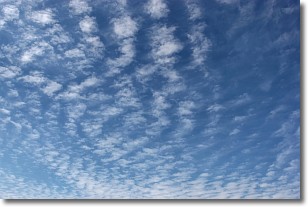Weather Alert in Delaware
High Surf Advisory issued August 19 at 9:56PM EDT until August 22 at 6:00AM EDT by NWS Mount Holly NJ
AREAS AFFECTED: Delaware Beaches
DESCRIPTION: * WHAT...For the High Rip Current Risk, life-threatening rip currents. For the High Surf Advisory, large breaking waves of up to 8 feet expected in the surf zone on Wednesday and 6 to 10 feet expected on Thursday. For the Coastal Flood Watch, one to two feet of inundation above ground level possible in low-lying areas near shorelines and tidal waterways. * WHERE...Delaware Beaches. * WHEN...For the High Rip Current Risk, through Thursday evening. For the High Surf Advisory, from 6 AM Wednesday to 6 AM EDT Friday. For the Coastal Flood Watch, from Thursday afternoon through Friday evening. * IMPACTS...At this level, widespread roadway flooding occurs in coastal and bayside communities and along inland tidal waterways. Many roads become impassable. Some damage to vulnerable structures may begin to occur. Dangerous swimming and surfing conditions and localized beach erosion. Rip currents can sweep even the best swimmers away from shore into deeper water.
INSTRUCTION: A Coastal Flood Watch means that conditions favorable for flooding are expected to develop. Be prepared to begin taking appropriate action to protect life and property. Follow the recommendations of local emergency management officials. Be sure to check the latest forecast from time to time in case a warning is issued or any new information becomes available. Visit the Advanced Hydrologic Prediction Service at water.weather.gov/ahps for additional water level and flood impact information for your local tide gauge. Inexperienced swimmers should remain out of the water due to dangerous surf conditions. Always obey posted Beach Flags. If you enter the surf zone, always have a floatation device with you and swim near a lifeguard if possible. If caught in a rip current, relax and float and do not swim against the current. If able, swim parallel to the shoreline. If unable to escape, face the shore and call or wave for help.
Want more detail? Get the Complete 7 Day and Night Detailed Forecast!
Current U.S. National Radar--Current
The Current National Weather Radar is shown below with a UTC Time (subtract 5 hours from UTC to get Eastern Time).

National Weather Forecast--Current
The Current National Weather Forecast and National Weather Map are shown below.

National Weather Forecast for Tomorrow
Tomorrow National Weather Forecast and Tomorrow National Weather Map are show below.

North America Water Vapor (Moisture)
This map shows recent moisture content over North America. Bright and colored areas show high moisture (ie, clouds); brown indicates very little moisture present; black indicates no moisture.

Weather Topic: What are Cirrocumulus Clouds?
Home - Education - Cloud Types - Cirrocumulus Clouds
 Next Topic: Cirrostratus Clouds
Next Topic: Cirrostratus Clouds
Cirrocumulus clouds form at high altitudes (usually around 5 km)
and have distinguishing characteristics displayed in a fine layer of
small cloud patches. These small cloud patches are sometimes referred to as
"cloudlets" in relation to the whole cloud formation.
Cirrocumulus clouds are formed from ice crystals and water droplets. Often, the
water droplets in the cloud freeze into ice crystals and the cloud becomes a
cirrostratus cloud. Because of this common occurrence, cirrocumulus cloud
formations generally pass rapidly.
Next Topic: Cirrostratus Clouds
Weather Topic: What are Cirrus Clouds?
Home - Education - Cloud Types - Cirrus Clouds
 Next Topic: Condensation
Next Topic: Condensation
Cirrus clouds are high-level clouds that occur above 20,000 feet
and are composed mainly of ice crystals.
They are thin and wispy in appearance.
What do they indicate?
They are often the first sign of an approaching storm.
Next Topic: Condensation
Current conditions powered by WeatherAPI.com




